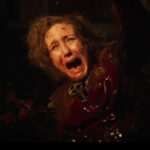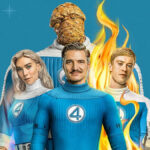For over 200 years, Mary Shelley’s classic Gothic novel Frankenstein; or, The Modern Prometheus has captivated readers and inspired countless adaptations across various mediums. The tale of an ambitious scientist who creates a sapient creature in an unorthodox scientific experiment has become a cultural touchstone, resonating with each new generation. In the realm of cinema, the Frankenstein mythos has spawned an array of interpretations, ranging from faithful adaptations to loose reimaginings and genre-blending mashups.
In this comprehensive exploration, we delve into the 20 best Frankenstein movies that have left an indelible mark on the world of film. From the iconic Universal Monsters series to modern retellings, these films showcase the enduring power of Shelley’s cautionary tale and its ability to evolve with the times. Each entry offers a unique perspective on the Frankenstein legend, highlighting the creativity and innovation of filmmakers who have dared to bring this timeless story to life on the silver screen.
20. “Blackenstein” (1973)
Kicking off our list is the Blaxploitation horror film “Blackenstein,” a bold reimagining of the Frankenstein story set against the backdrop of the Vietnam War. Directed by William A. Levey, the film follows a wounded African American soldier who undergoes an experimental procedure that transforms him into a vengeful creature. While the film’s low-budget production values and campy elements may not appeal to all viewers, “Blackenstein” deserves recognition for its audacious attempt to infuse the Frankenstein mythos with social commentary and a fresh perspective.
19. “Igor” (2008)
This animated comedy from director Tony Leondis offers a lighthearted and family-friendly take on the Frankenstein legend. “Igor” centers on the titular character, a hunchbacked lab assistant who dreams of becoming a mad scientist himself. With a voice cast that includes John Cusack, Steve Buscemi, and John Cleese, the film delivers a charming and humorous twist on the classic tale, exploring themes of friendship, ambition, and the power of believing in oneself.
18. “Frankenstein Conquers the World” (1965)
A prime example of the kaiju genre, “Frankenstein Conquers the World” is a Japanese-American co-production that pits a giant Frankenstein monster against an equally colossal subterranean creature. Directed by Ishirō Honda, the mastermind behind the original “Godzilla” (1954), this film blends elements of science fiction, horror, and monster movies to create a thrilling and visually striking spectacle. While the plot may be far removed from Shelley’s original novel, “Frankenstein Conquers the World” stands as a testament to the malleability of the Frankenstein mythos and its ability to transcend cultural boundaries.
17. “Mary Shelley’s Frankenstein” (1994)
Directed by Kenneth Branagh, who also stars as Victor Frankenstein, this adaptation aims to be a more faithful retelling of Shelley’s novel than many of its predecessors. With a cast that includes Robert De Niro as the Creature and Helena Bonham Carter as Elizabeth, “Mary Shelley’s Frankenstein” boasts impressive performances and lavish production design. While the film’s melodramatic tone and deviations from the source material may not resonate with all viewers, it remains a visually stunning and emotionally charged entry in the Frankenstein canon.
16. “Frankenstein Unbound” (1990)
Based on the novel by Brian Aldiss, “Frankenstein Unbound” is a science fiction film that blends elements of time travel, dystopian futures, and the Frankenstein legend. Directed by Roger Corman, the film follows a scientist from the 21st century who finds himself transported back to the 19th century, where he encounters Victor Frankenstein and his creation. With a cast that includes John Hurt, Raul Julia, and Bridget Fonda, “Frankenstein Unbound” offers a unique and thought-provoking take on the classic tale, exploring the consequences of unchecked scientific ambition across time.
15. “The Rocky Horror Picture Show” (1975)
While not a direct adaptation of Shelley’s novel, “The Rocky Horror Picture Show” pays homage to the Frankenstein legend through its central character, Dr. Frank-N-Furter, a mad scientist who creates a muscular, blonde creature named Rocky. Directed by Jim Sharman and featuring an iconic performance by Tim Curry, this cult classic musical blends elements of science fiction, horror, and camp to create a one-of-a-kind cinematic experience. With its infectious soundtrack, memorable characters, and celebration of individuality, “The Rocky Horror Picture Show” has become a beloved cultural phenomenon that continues to attract new fans decades after its release.
14. “Frankenstein’s Army” (2013)
Set during the closing days of World War II, “Frankenstein’s Army” is a found-footage horror film that imagines a secret Nazi experiment to create an army of undead supersoldiers. Directed by Richard Raaphorst, the film follows a Soviet reconnaissance unit as they stumble upon a hidden laboratory filled with grotesque and deadly creations. With its inventive creature designs and intense atmosphere, “Frankenstein’s Army” offers a fresh and terrifying spin on the Frankenstein mythos, blending elements of historical fiction, science fiction, and body horror.
13. “Frankenweenie” (2012)
Directed by Tim Burton, “Frankenweenie” is a stop-motion animated film that serves as both a loving homage to classic horror movies and a heartwarming tale of a boy’s love for his dog. When young Victor Frankenstein’s beloved pet, Sparky, is hit by a car, the budding scientist uses his knowledge of science to bring the dog back to life. With its striking visuals, quirky humor, and themes of friendship and acceptance, “Frankenweenie” is a charming and family-friendly entry in the Frankenstein canon that showcases Burton’s signature style and his affection for the horror genre.
12. “Depraved” (2019)
A modern reimagining of the Frankenstein story, “Depraved” is an indie horror film that explores the ethical and psychological implications of creating life. Directed by Larry Fessenden, the film follows a disillusioned field surgeon who, with the help of his eccentric benefactor, attempts to resurrect a man using body parts collected from various unwilling donors. As the creature, named Adam, grapples with his existence and the fragmented memories of his past lives, the film delves into themes of identity, morality, and the consequences of playing God. With its grounded approach and thought-provoking narrative, “Depraved” breathes new life into the Frankenstein legend, offering a haunting and introspective take on the classic tale.
11. “Abbott and Costello Meet Frankenstein” (1948)
A prime example of the horror-comedy genre, “Abbott and Costello Meet Frankenstein” brings together the iconic comedy duo with a trio of classic Universal Monsters: Frankenstein’s monster, Dracula, and the Wolf Man. Directed by Charles Barton, the film follows Bud Abbott and Lou Costello as they become embroiled in a plot involving the monsters and their various schemes. With its blend of slapstick humor, spooky atmosphere, and beloved horror icons, “Abbott and Costello Meet Frankenstein” is a delightful and entertaining romp that showcases the enduring appeal of these classic characters.
10. “The Bride” (1985)
Directed by Franc Roddam, “The Bride” is a romantic horror film that reimagines the story of Frankenstein’s monster and his bride. Set in the 19th century, the film follows Baron Charles Frankenstein (Sting) as he creates a female companion (Jennifer Beals) for his original creature (Clancy Brown). As the two creatures develop a bond and seek to escape their creator’s control, the film explores themes of love, identity, and the nature of humanity. With its lush visuals, gothic atmosphere, and compelling performances, “The Bride” offers a poignant and beautifully crafted take on the Frankenstein mythos.
9. “Edward Scissorhands” (1990)
While not a direct adaptation of Shelley’s novel, Tim Burton’s “Edward Scissorhands” draws heavily from the Frankenstein legend, presenting a modern fairy tale about an artificial man struggling to find his place in the world. Johnny Depp stars as the titular character, a gentle and naive creation with scissors for hands, who is taken in by a suburban family and falls in love with their teenage daughter (Winona Ryder). With its whimsical tone, striking visuals, and themes of outsiderdom and acceptance, “Edward Scissorhands” is a beloved classic that showcases Burton’s unique vision and his ability to infuse familiar stories with newfound depth and emotion.
8. “Frankenstein Created Woman” (1967)
The fourth entry in Hammer Films’ Frankenstein series, “Frankenstein Created Woman” is a gothic horror film that explores the themes of soul transference and revenge. Directed by Terence Fisher, the film follows Baron Frankenstein (Peter Cushing) as he experiments with capturing the souls of the recently deceased and implanting them into new bodies. When a wrongfully executed man’s soul is placed into the body of his lover, who had committed suicide, the stage is set for a tale of vengeance and tragedy. With its atmospheric visuals, philosophical underpinnings, and strong performances, “Frankenstein Created Woman” is a standout entry in Hammer’s acclaimed series.
7. “Frankenstein” (2015)
This National Theatre stage production, directed by Danny Boyle and written by Nick Dear, offers a faithful and emotionally resonant adaptation of Shelley’s novel. Benedict Cumberbatch and Jonny Lee Miller alternate between the roles of Victor Frankenstein and his Creature, delivering powerful and nuanced performances that breathe new life into these iconic characters. By focusing on the Creature’s journey and his yearning for acceptance and understanding, this production presents a deeply humanizing and empathetic portrayal of Frankenstein’s creation. While not a traditional film, this recorded stage production is a must-see for any fan of the Frankenstein story, showcasing the enduring power of Shelley’s narrative and the limitless potential for its reinterpretation.
6. “Flesh for Frankenstein” (1973)
Directed by Paul Morrissey and produced by Andy Warhol, “Flesh for Frankenstein” is a transgressive and darkly comedic take on the Frankenstein mythos. Udo Kier stars as Baron von Frankenstein, a deranged scientist who, along with his equally unhinged sister-wife (Monique van Vooren), creates male and female creatures with the goal of breeding a master race. With its graphic violence, sexual content, and satirical edge, “Flesh for Frankenstein” is a provocative and subversive film that pushes the boundaries of the horror genre and challenges traditional notions of taste and morality.
5. “The Spirit of the Beehive” (1973)
Set in the aftermath of the Spanish Civil War, Víctor Erice’s “The Spirit of the Beehive” is a haunting and poetic film that explores the impact of James Whale’s “Frankenstein” (1931) on a young girl named Ana (Ana Torrent). As Ana becomes increasingly fascinated with the figure of Frankenstein’s monster, she begins to blur the lines between reality and fantasy, leading to a series of mysterious and transformative encounters. With its stunning cinematography, dreamlike atmosphere, and profound meditations on childhood, trauma, and the power of cinema, “The Spirit of the Beehive” is a masterful film that uses the Frankenstein mythos as a lens through which to examine the human condition.
4. “Young Frankenstein” (1974)
Mel Brooks’ “Young Frankenstein” is a loving parody of the classic Universal Monsters films, particularly the Frankenstein series. Gene Wilder stars as Dr. Frederick Frankenstein, the grandson of the infamous Victor Frankenstein, who inherits his family’s estate and takes up his ancestor’s experiments. With a cast that includes Marty Feldman, Teri Garr, and Peter Boyle as the Creature, “Young Frankenstein” is a hilarious and affectionate tribute to the horror genre, filled with memorable gags, quotable lines, and pitch-perfect performances. Shot in black-and-white and featuring meticulously recreated sets and costumes, the film captures the essence of the classic Universal horror films while infusing them with Brooks’ signature brand of irreverent humor.
3. “The Curse of Frankenstein” (1957)
Hammer Films’ “The Curse of Frankenstein” marked a significant turning point in the history of horror cinema, ushering in a new era of gothic horror that emphasized vivid color, graphic violence, and heightened sexuality. Directed by Terence Fisher and starring Peter Cushing as Victor Frankenstein and Christopher Lee as the Creature, this film offers a bold and dynamic reimagining of Shelley’s novel, one that would set the stage for a series of increasingly lurid and provocative Frankenstein films from Hammer throughout the 1950s and 1960s. With its striking visuals, memorable performances, and influential special effects, “The Curse of Frankenstein” is a landmark film that redefined the horror genre and cemented Hammer’s status as a powerhouse of British cinema.
2. “The Bride of Frankenstein” (1935)
James Whale’s “The Bride of Frankenstein” is widely regarded as one of the greatest sequels ever made, a film that expands upon the themes and characters of its predecessor while introducing new elements that have become iconic in their own right. Picking up where “Frankenstein” (1931) left off, the film follows the Creature (Boris Karloff) as he seeks companionship and understanding in a world that fears and rejects him. With the introduction of Dr. Pretorius (Ernest Thesiger), a rival scientist who convinces Henry Frankenstein (Colin Clive) to create a mate for the Creature, “The Bride of Frankenstein” delves deeper into the moral and ethical implications of playing God, while also exploring the Creature’s yearning for love and acceptance. Featuring groundbreaking special effects, a haunting musical score, and a darkly humorous tone that balances the film’s more serious themes, “The Bride of Frankenstein” is a cinematic masterpiece that stands as a testament to the enduring power of Shelley’s creation.
1. “Frankenstein” (1931)
James Whale’s “Frankenstein” is the quintessential Frankenstein film, a landmark of horror cinema that has shaped the public’s perception of the Frankenstein mythos for nearly a century. Adapted from Peggy Webling’s 1927 play, which itself was based on Shelley’s novel, the film stars Colin Clive as the driven and ambitious Henry Frankenstein, who becomes obsessed with the idea of creating life from dead tissue. With the help of his assistant, Fritz (Dwight Frye), Frankenstein succeeds in animating a creature (Boris Karloff) sewn together from the bodies of the recently deceased. However, the Creature’s childlike innocence and desire for acceptance are met with fear and violence, leading to a tragic and unforgettable confrontation between creator and creation. With its iconic makeup design, memorable performances, and themes of hubris, responsibility, and the consequences of unchecked scientific ambition, “Frankenstein” remains a timeless classic that continues to resonate with audiences to this day, cementing its place as the greatest Frankenstein film of all time.
Conclusion
The Frankenstein mythos has proven to be an endlessly fertile source of inspiration for filmmakers across generations and genres. From the iconic Universal Monsters series to modern retellings and genre-blending experiments, these 20 films represent the best of what the Frankenstein legend has to offer, showcasing the creativity, innovation, and enduring power of Mary Shelley’s timeless tale. Whether viewed as cautionary tales about the dangers of unchecked ambition, meditations on the nature of humanity, or explorations of the eternal struggle for acceptance and understanding, these films continue to captivate and inspire audiences, ensuring that the legacy of Frankenstein will endure for generations to come.





